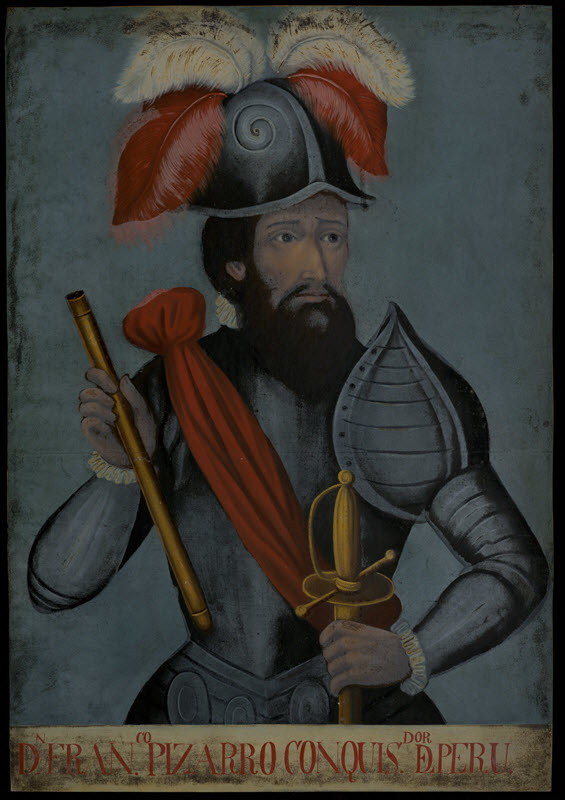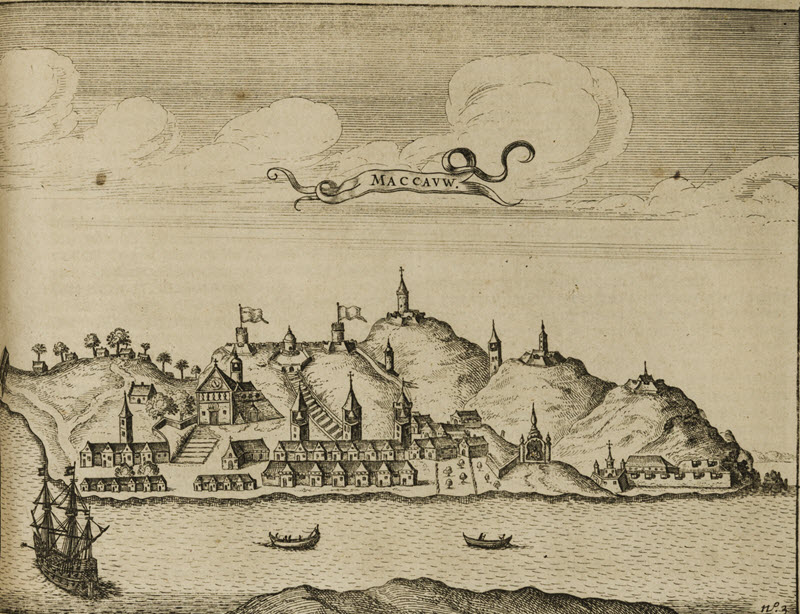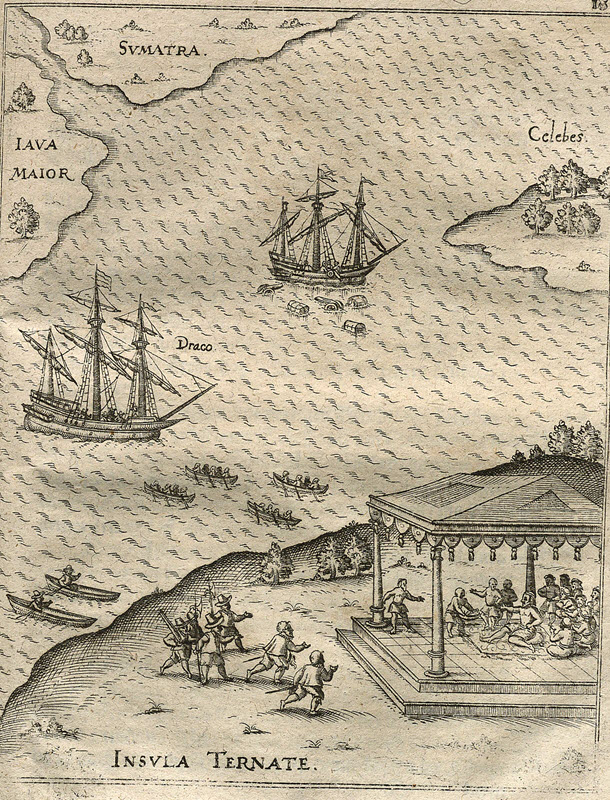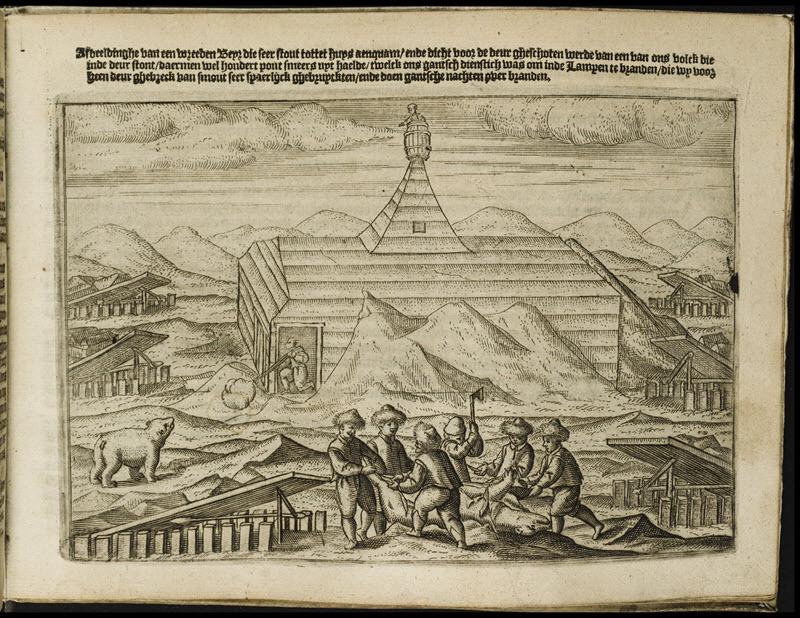1531
The Spanish cultivate tobacco in San Domingo.
The Spanish cultivate tobacco in San Domingo.
Francisco Pizarro leads a third expedition against the Inca Empire, capturing Coxamaraca.

Pizarro completes the annihilation of the Incas, eventually capturing Cuzco.
The Sultans of Gujarat cede Bombay and other territories to Portugal.
Jacques Cartier embarks upon his first voyage, from St Malo to Newfoundland and the mouth of the St Lawrence River.
Cartier embarks upon a second voyage, making contact with Hwon Indians. He claims contemporary Quebec and Montreal for King Francois I of France.
The fur trade is established in Canada.
Almagro crosses the Andes from Cuzco.
Belalcázar, Jiménez de Quesada and Federman search for gold in what is now Colombia.
Francisco de Ulloa sails the western shores of the Baja California peninsula, establishing that it is not an island.
Hernando de Soto travels through what is now Florida, Georgia, the Carolinas, Tennessee, Alabama, Mississippi, Arkansas, Oklahoma and Texas. The expedition introduces pigs, horses and smallpox to North America.
Francisco de Orellana explores the Amazon River from Rio Napo to the sea.
Coronado, Alacon and Cardenas explore the South-western part of North America. Coronado reaches contemporary Kansas; Cardenas reaches the Grand Canyon, and Alarcon reaches the mouth of the Colorado River.
Cartier establishes a settlement in Quebec.
Valdivia explores Chile, founding the city of Santiago.
Cabritlo explores the west coast of North America, reaching as far as Monterey Bay.
Spain establishes the Viceroyalty of Peru, which administers its Southern American colonies.
Copernicus publishes his theory that the planets move round the sun.

A group of Portuguese traders become the first Europeans known to have reached Japan, landing on the island of Tanegashima.
Smallpox wipes out a large portion of the Inca people.
Hans Staeden, a German mercenary, joins a Portuguese expedition to Rio de la Plata, and is subsequently captured by indigenous people.
Francis Xavier establishes a Christian mission in Japan.
Bartolomé de las Casas' Short Account of the Destruction of the Indies is published.
Sir Hugh Willoughby’s attempt to find a Northeast Passage ends in disaster.
The Muscovy Company is formed to promote British trade with Russia.
Spanish settlers grow cotton in Florida.

Portugal leases a trading outpost in Macau on the coast of China, trading silver for silk, porcelain and tea.
Anthony Jenkinson makes his first expedition through Russia and Persia.
Jasper de Cruz, a Portuguese Jesuit, becomes the first Westerner to taste and then write about tea.
John Hawkins embarks upon his first slaving voyage.
Frenchman Rene Goulaine de Laudonnière embarks upon a voyage to colonise Florida.
Miguel Lopez de Legaspi leads an expedition to the Philippines and Guam.
An expedition led by Andrés de Urdaneta crosses the Pacific, from the Philippines to Mexico.
Álvaro de Mendaña y Neira explores the South Pacific, reaching an island group which he dubs the Solomon Islands.
Francis Drake embarks upon a series of voyages to the West Indies, intended to disrupt and capture Spanish shipping.
The Dutch Revolt against the Spanish begins.
A port intended to harbour Portuguese vessels is established at Nagasaki.
A Spanish fleet supported by Venice, Genoa, the Pope and others defeats an Ottoman fleet at the Battle of Lepanto, severely damaging Turkish influence in the Mediterranean.
A law is passed in Portugal which prohibits the sale of Chinese and Japanese slaves.

The Portuguese are ousted from their base in Ternate, and move the focus of their activities to Ambon.
Martin Frobisher reaches Baffin Bay.
Francis Drake circumnavigates the world in the Pelican (renamed the Golden Hind), passing through what becomes known as the Drake Passage.
Frobisher embarks upon his second voyage to find a route to Cathay (China.)
Frobisher leads a third voyage in search of a Northwest Passage.
Francis Drake captures a Spanish treasure ship carrying 26 tons of silver and 80 lbs of gold.
Akbar establishes friendly relations with the Portuguese and allows Jesuit missionaries to visit Delhi.
Spain annexes Portugal.
Martín Ignacio de Loyola completes his first circumnavigation, pausing to pursue missionary efforts in China.
The Dutch United Provinces declare independence from Spain.
The pendulum is invented by Galileo Galilei.
Richard Hakluyt publishes Divers Voyages Touching the Discoverie of America.
Berrío explores the Orinoco valley looking for El Dorado; he is eventually captured by Sir Walter Raleigh.

Jan Huyghen van Linschoten sails from Portugal to Goa. During his sojourn in Goa, Linschoten keeps a detailed record of routes to the Spice Islands, which later facilitates Dutch attempts to challenge Portugal's influence in the region.
Sir Humphrey Gilbert claims Newfoundland for Elizabeth I of England.
Sir Walter Raleigh receives a patent to explore and settle in North America. He tries, but fails to establish a colony in Virginia.
The Anglo-Spanish War sees intermittent conflict, mostly at sea, in Europe and South America.
Martín Ignacio de Loyola circumnavigates the world for a second time, visiting China again.
The first shipment of cacao beans arrives in Spain from Mexico.
John Davis makes three successive attempts to discover the Northwest Passage
Sir Thomas Cavendish circumnavigates the world, raiding Spanish bullion ships and visiting Guam and the Philippines.
Francis Drake raids Cadiz and sinks a large section of the Spanish fleet.
Francis Drake captures a Portuguese ship carrying spices worth £140,000.
Lorenzo Ferrer Maldonado claims to have successfully navigated the Northwest Passage.
The Spanish Armada is defeated in its attempt to invade England and Spanish sea power is broken.
John Davis discovers the Falkland Islands.
Galileo Galilei invents the thermometer.
Sir Richard Hawkins sails for the West Indies aboard the Dainty.

Willem Barentsz and Jan Huyghen van Linschoten seek the Northeast Passage, but are forced to turn back when they encounter frozen seas.
Drake and Hawkins make their final voyage to the Caribbean.
The first Dutch fleet sails for the Spice Islands, commanded by Cornelis van Houten.
Álvaro de Mendaña y Neira and Pedro Fernandés de Quirós reach the Marquesas Islands.
Raleigh leads an unsuccessful expedition to find gold in the Caroni Valley.
Barentsz embarks upon a second voyage in search of the Northeast Passage.
Onate leads the colonisation of contemporary New Mexico for Spain.
Cornelus de Houtman leads a trading voyage to the East Indies.

Barentsz dies while leading a third voyage in search of the Northeast Passage, which is forced to winter in Nova Zembla.
Oliver van Noort becomes the first Dutchman to circumnavigate the world, via the Spice Islands.
The Dutch build their first forts on the Gold Coast.
Henry IV of France grants a 10 year fur trade monopoly to Pierre de Chauvin de Tonnetuit, who establishes a trading post in Quebec.
The Liefde, piloted by the Englishman William Adams, becomes the first Dutch vessel to reach Japan.
The East India Company receives its first charter.
James Lancaster commands the first East India Company fleet, successfully establishes an alliance with Aceh and Sumatra, and founds a factory in Bantam, Java.